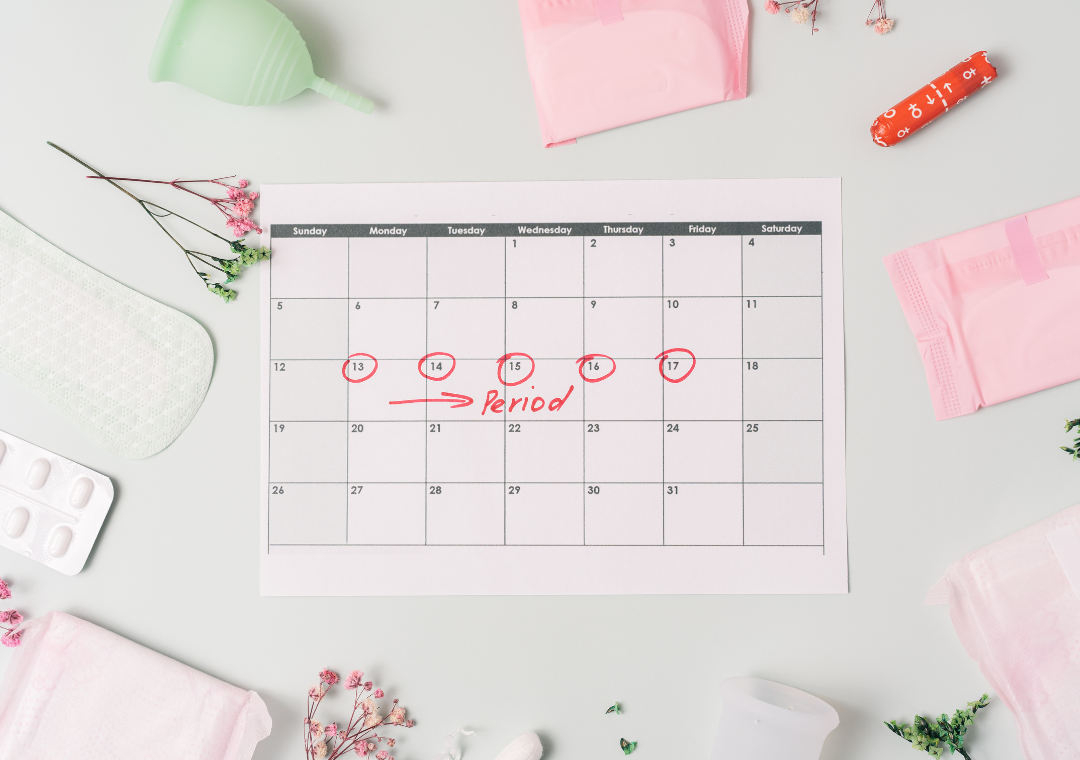
*If you find yourself suffering from miserable PMS or period symptoms, on or off of birth control, BINTO’s supplements might be a great solution for you. We use a custom blend of vitamins to help with cramps, mental health, and fatigue. Our probiotics are great for your digestion and easing bloating, too! Tell us your symptoms and we’d be happy to tailor everything exactly to your health needs.
I’m sure most of us still remember the day we first learned about periods, no matter how many decades have gone by since then. These accounts range anywhere from awkward to sentimental, or just downright hilarious. Some women never actually learned about menstruation, while others received a Catholic-school rendition with a lot of metaphors and minimal medical explanations. BINTO’s guide to menstruation is easy, accurate, and non-sense free.
What is menstruation?
A woman’s body goes through changes in order to prepare for pregnancy. Your uterus (where a baby would develop) grows a thick lining in preparation for a fertilized egg. Each month, as long as there is no fertilized egg, the uterus sheds this lining. This is your menstrual period.
What age do most girls start getting their period?
Around ages 11-14. Sometimes there are cases when girls get it earlier or later (1).
What’s controlling my period?
Hormones, hormones, hormones. Your brain (specifically the pituitary gland and hypothalamus) send these chemical signals to and from your ovaries (1). Your ovaries (which produce eggs), and the signals prepare your uterus for potential pregnancy.
Estrogen is the hormone responsible for creating the lining of the uterus, while progesterone keeps the lining thick and prepares it for a fertilized egg. When these hormone levels drop, the lining breaks down and causes your period.
Week by Week

Week 1: Your Period
Hormones: levels of estrogen and progesterone are low
Body: Uterine lining sheds, causing menstrual bleeding
Week 2: The Follicular Phase
Hormones: Estrogen and testosterone levels rise, the Follicle Stimulating Hormone (FSH) is released by your brain
Body: The follicles containing your eggs mature in your ovaries
Week 3: Ovulation
Hormones:Estrogen and testosterone are at peak levels
Body: An egg is released by your ovaries
Week 4: The Luteal Phase
Hormones: estrogen and testosterone levels decline, progesterone levels increase
Body:Uterine lining thickens, PMS symptoms begin
Resources:
1.https://www.webmd.com/women/tc/normal-menstrual-cycle-topic-overview#1

